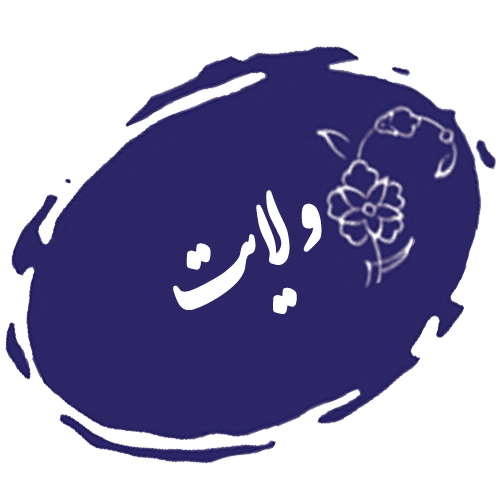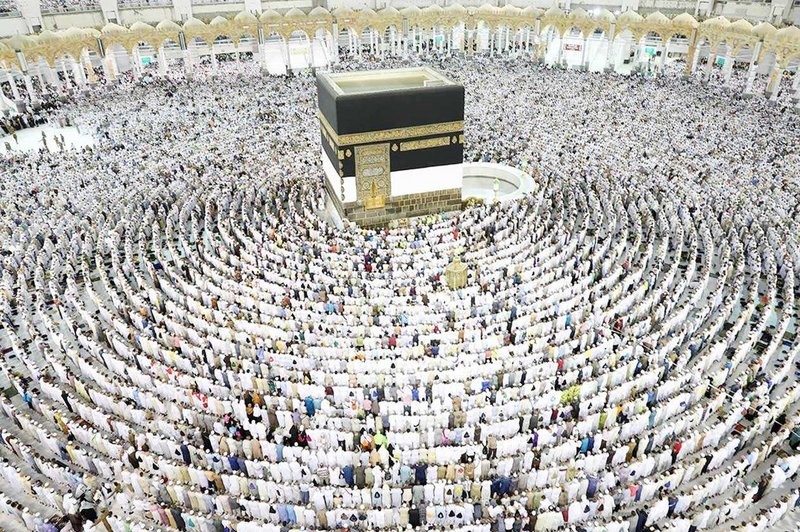Zakat – the Purifier of the Soul and the Multiplier of Wealth

Lady Fatimah al-Zahra (sa), in the second portion of her famous “Al-Khuṭbah al-Fadakiyah, explains the philosophy behind several prominent Islamic and Quranic teachings. She begins by talking about faith and belief, then talks about Ṣalāt (or ritual Islamic worship), and follows it with the issue of Zakāt. As such, the Blessed Lady is narrated to have said: “… and (God decreed) Zakāt as a purifier for the soul, and a multiplier of sustenance”.
The Holy Quran often mentions Ṣalāt and Zakāt simultaneously. For instance, the sacred book says: “and He has enjoined me to (maintain) the ṣalāṭ (i.e. ritual prayer) and to (pay) the zakāt as long as I live”[1]. Similarly, another Quranic verse states, “… these are the signs of the Quran and a manifest Book, a guidance and good news for the faithful, those who maintain the ṣalāt and pay the zakāt, and who are certain of the Hereafter”[2]. The linking of these two subjects may indicate that human beings need two elements to strengthen their connection with God. The first is an internal and spiritual element developed through devout ritual practices such as the performance of Ṣalāt (or ritual worship). In contrast, the second is an external element wherein a believer must manage and improve their connection and interaction with God’s other servants, which indirectly enhances their relationship with the Almighty. This means that God has assigned various duties and obligations to each individual regarding other human beings. Every pious believer must diligently perform these duties to fulfil the requirements of solemn servitude towards God Almighty.
The Concept of Zakāt and the Instances of its Utilisation
The Arabic word Zakāt bears two meanings, and these denotations are more specific, while the second signifies a more general idea. Zakāt, in its specific meaning, stands for an obligatory Islamic act of economic worship wherein a believer must pay alms upon certain particular assets and properties. However, in its more general meaning, Zakāt signifies any act of financial support and philanthropy towards the poor that is performed to gain the Almighty’s divine pleasure. In other words, the essential concept of Zakāt within religious culture, be it Islamic or otherwise, represents an idea that encompasses all forms of monetary charity carried out for the sake of God, regardless of the title it may technically bear.
Similarly, the Islamic concept of Ṣadaqah is also often misunderstood. Many people wrongly assume that it exclusively signifies voluntary and recommended almsgiving alone. However, the Holy Quran employs this same term when speaking about the obligation of Zakāt in its aforementioned particular meaning: “Ṣadaqāt (or charities) are only for the poor and the needy, and those employed to collect them, and those whose hearts are to be reconciled, and for (the freedom of) the slaves and the debtors, and in the way of Allah, and for the traveller. (This is) an ordinance from Allah and Allah is all-knowing, all-wise”[3]. This Quranic verse specifies the instances wherein Zakāt, in its particular meaning, must be utilised. Therefore, the meaning of Zakāt and Ṣadaqah in the Holy Quran is more general and inclusive than those ascribed to these terms by widespread contemporary usage or the science of jurisprudence.
The Secrets of Zakāt
In her famous sermon, the Blessed Lady Fatimah al-Zahra (sa) mentions two salient attributes for Zakāt. She says that the divine legislation of this religious duty serves two primary purposes: firstly, it purifies the soul, and secondly, it increases one’s sustenance and wealth.
The Purification of One’s Soul
As stated above, the first of the many secrets behind the divine legislation of Zakāt is that it cleanses a believer’s heart and soul of spiritual ills. One might as well ask how this happens? How exactly does Zakāt lead to the purification of the human essence? If such a characteristic had been mentioned about Ṣalāt, it would have been more readily comprehensible. However, when it comes to Zakāt, people find it difficult to grasp how financially helping other individuals can lead to spiritual cleansing and development in their souls.
“Purity and growth” is the literal meaning of the Arabic word “Zakāt”, which belongs to the same semantic family as the word “Tazkiyah.”[4]. This term used to signify circumstances wherein the grounds for a particular object’s growth and development were furnished by removing what is unnecessary or superfluous, like the pruning of a tree. During the appropriate season of a year, it is common practice amongst gardeners and horticulturists to cut off some branches of a fruit-bearing tree to improve its produce, both in terms of quality and quantity. The extra branches and leaves ravenously consume the much-needed sustenance and nutrients, thereby leaving a relatively lesser amount of it for the fruit-bearing parts of the tree, which in turn leads to a fall in the quantity and quality of the produce. Since ancient times, the gardeners have helped prevent such a situation by meticulously pruning trees under their supervision. This vital process was known as the Tazkiyah of trees.
The word Zakāt is considered to share the same etymological roots. By paying Zakāt, human beings remove the stipulated additional portion of their wealth and distribute it amongst the poor. By doing so, they effectively prune the symbolic tree of their sustenance and income, causing it to become even more bounteous and fruitful. Therefore, it is much easier to understand how Zakāt increases and multiplies a person’s sustenance than comprehend how it serves to cleanse and purify their soul.
How Zakāt Purifies the Human Soul
The purification of the human soul via the payment of Zakāt can be expounded upon in the following manner:-
Wealth and Property; the Groundworks for Worldly Attachment
Worldly and material matters do not hold importance within Islamic worldview and ideology. Their importance is auxiliary and they serve only as tools to attain higher purposes. Contrary to materialistic and atheistic beliefs, human beings do not exist to consume and utilise worldly pleasures. Instead, we must always keep in mind that this material realm is not our final and true objective, and therefore we must only engage in it to the extent that facilitates us to achieve our actual goal and purpose. The Almighty, out of His infinite mercy and generosity, has placed pleasure within the bounds of utilisation of His worldly blessings, and He has done so to allow us to use these gifts with greater inclination and motivation. If food and drink were not physically gratifying, most human beings would not show any interest in them, and this could culminate in death.
Similarly, if people were not endowed with natural sexual instincts and desires, they would lack the motivation to form families and have children. This is especially true with the spread of western culture that propagates hedonistic materialism and leads young people to seek carnal pleasure outside the constraints of familial responsibility. As such, they are culturally incentivised to lead self-centric and individualistic lives, shying away from the commitments of matrimony and to lack any motivation towards accepting the duties and burdens involved in raising and educating children. Indeed, if God had not embedded such strong sexual tendencies in human nature, people would not have been sufficiently motivated to form families or bear offspring. However, such powerful sexual instincts automatically drive human beings towards satisfying their sexual urges, which leads to the continuation of the human species.
In short, if there were not any inbuilt pleasure in fulfilling worldly and bodily necessities, people would not take due interest in performing these tasks, especially in circumstances where such actions involve the endurance of certain hardships. As such, humankind would face extinction, which would effectively usurp them of the opportunity to gain knowledge, attain wisdom, and worship God. Consequently, people would not achieve spiritual and existential development. This would have barred them from attaining holistic and eternal prosperity and robbed them of their chance to live in Paradise.
The achievement of ultimate success, which is infinite and eternal, as well as the attainment of God’s divine pleasure and proximity, requires a human being to journey through worldly life within this material realm. This means that if a person desires to accomplish those lofty and sublime goals, they must stay in this world for a period ordained by the Almighty while patiently tolerating the many toils and tribulations that exist therein. In this manner, the individual develops and evolves spiritually by dutifully engaging in pious servitude towards God in this temporal arena.
Having some measure of wealth is a prerequisite for life in a human society. Without it, one cannot fulfil one’s legitimate needs and desires. Therefore, human beings have always strived to earn an income and accumulate material affluence. In addition, people are generally not satisfied by just earning an income that meets their minimum requirements. Gathering wealth is the predominant human preoccupation with economic activity forming the overwhelming bulk of all human engagements. People spend a vast proportion of their time involved in actions that are directly or indirectly aimed at making more money while readily enduring a wide assortment of difficulties and hardships to do so. Naturally, anything achieved through labour and hard work is perceived as valuable. Therefore human beings form an automatic emotional and psychological attachment to the fruits of their exertions. When this attachment forms, it overshadows and effectively realigns a person’s intellectual and emotional faculties. The person in question is constantly immersed in thoughts of making more and more money. Suppose this individual is endowed with superior cognitive skills and mental acumen. In that case, they will continuously be strategising to broker the best deals and target the most lucrative investments to increase their earnings exponentially. On the other hand, if a person is physically gifted, he will try to work harder and longer, using his bodily stamina to secure higher profits.
Given this severe attachment, if such an individual is asked to give up a portion of his hard-earned assets in the form of charity, they will genuinely find it very difficult to do so. Indeed, when our hearts become so affixed upon amassing and hoarding wealth, even paying obligatory religious dues like Khums (i.e. one-fifth of a believer’s yearly savings) appears to be difficult. Now, imagine being asked to dispense money voluntarily upon recommended acts of almsgiving.
The attachment mentioned above and fixation on worldly matters can prove very dangerous. Indeed, if it is allowed to grow and spread its influence, it can lead a person to utter disbelief and faithlessness. The minimum level of damage caused by such an obsession is that it completely preoccupies our thoughts, seizes up all of our time and energy, and robs us of the precious opportunity to gain spiritual excellence by sincerely serving and worshipping the Almighty. As such, it represents an instance of inner impurity that forms one of the most significant obstacles in the path of any human being’s spiritual development and ascension. A person suffering from this condition is comparable to a bird with a heavy rock tied to its foot while attempting to fly. The heavier this weight, the more problematic it would be for the bird to take flight. Without a doubt, this bird knows how to fly high in the sky and bears the inherent potential to do so, but as long as the rock keeps pulling it down, it cannot make use of its essential capabilities and faculty.
Humanity is gifted with the power of the human intellect, the faculty of awareness and the blessing of knowledge. At the same time, the sacred teachings of God’s holy prophets (as) are readily available to them. Therefore, they know that true success and ultimate prosperity lie exclusively in reaching Paradise and achieving God’s spiritual proximity and divine pleasure. As such, they realise that the material world, with its many trappings, is nothing but a mere plaything. The Holy Quran says: “The life of the world is just play and diversion”[5]. However, when they become involved and immersed in practical life, human beings often start doubting these principles, to the extent that they sometimes totally forget them.
Therefore, any person thus attached to worldly possessions suffers greatly if he loses or misplaces even a tiny amount of his assets or properties. Consequently, he can only think about his lost money, even while performing ritual prayers. This ongoing preoccupation is a clear symptom of his deep-seated spiritual illness. How can such an individual be expected to be indeed able to gather the spiritual focus to worship God? How can he be expected to willingly wake up before dawn, full of spiritual vitality, to supplicate before his Lord and Master? No! This individual can never be expected to engage in such acts of solemn devotion! His unhealthy attachment to the material world represents a chronic spiritual disease that renders him incapable of action.
Zakāt; The Cure for Worldly Attachment
So how can this sickness be cured? How can the heart be cleansed of this contamination? The Holy Quran informs us of the treatment required to get rid of this ailment. It says, “You will never attain piety until you spend out of what you hold dear”[6].
If a person wishes to be pure and desires to preserve this purity, he must prune away what is superfluous in his wealth and property. He must willingly distribute some of his earned or inherited money amongst other people. If he does not do so, his deep-rooted attachment to worldly affluence will remain an unsurpassable impediment to his spiritual growth and development. As mentioned earlier, this obsession with material wealth acts like a heavy rock shackling an individual ankle, making it difficult for him to walk. If this person wishes to move and progress, he must first rid himself of this burden. For this purpose, the Almighty has made it obligatory upon believers to give away a particular portion of their belongings in the form of Khums and Zakāt while also leaving open the option to engage in additional acts of voluntary charity to cleanse their hearts and souls further. However, one should always act with temperance and moderation in all matters.
Hence, it becomes clear that charity is the best way to purify oneself of worldly attachments. The Holy Quran states that an individual can never become genuinely righteous unless he freely gives away what he adores and believes to be precious and valuable. Thus, charity does not involve giving away things that are redundant or considered to be scrap. The Holy Quran emphasises this very issue when it says, “O you who have faith! Spend (in charity) from the good things you have earned, and from what We bring forth for you from the earth, and do not be of the mind to give away (in charity) the bad part of it, for you yourselves would not take it unless you overlook it. And know that Allah is all-sufficient, all-laudable”[7].
Zakāt is one such instance of financial aid towards the poor and the deserving, and, consequently, it holds within itself the aforementioned spiritual effect. Therefore, by paying Zakāt, a believer effectively cleanses his heart and soul of the impurity of worldly attachment. The Holy Quran addresses the Sacred Messenger of Islam (s) and says, “Take charity from their possessions to cleanse them, purify them thereby, and bless them”[8].
Thus, Zakāt washes away a person’s preoccupation and fixation towards worldly assets and gains, thereby removing this major obstacle that hinders him from focusing upon the Hereafter and inhibits him from loving and sincerely worshipping the Almighty. This is why the Blessed Lady Fatimah al-Zahra (sa) said, “… and (God decreed) Zakāt as a purifier for the soul”.
There also exists another dimension to this issue. Khums and Zakāt represent obligatory religious duties that are incumbent upon all believers. When a believer fails to pay these dues, he effectively usurps money that belongs to God or other believers. As long as this money remains in his illegal custody, his wealth and property are impure. It is religiously forbidden for him to utilise any portion of his assets. By paying Khums and Zakāt, the person in question purifies and legitimises his wealth and income.
Nevertheless, the primary concern in this matter mainly pertains to cleansing the human soul of worldly attachments and material fixations.
The Multiplication of One’s Wealth and Sustenance
The second advantage of paying Zakāt is a worldly and material one. By paying Zakāt, a person increases his wealth and sustenance. Even though an individual who dispenses Zakāt is decreasing his money, his righteous act brings benediction to his income and effectively multiplies his earnings. We can better understand this unique phenomenon by taking into consideration the following three reasons:-
Taqwā (or God-conscious self-discipline); A Reason for Increased Sustenance
It is evident within the verses of the Holy Quran that pious servitude towards God and diligent observance of His divine laws and commandments leads the Almighty to open the doors of infinite mercy and benevolence upon His righteous servant. So great is God’s benevolence and generosity that His servant is rendered utterly incapable of fathoming and calculating its extent and magnitude. The Holy Quran states, “And whoever is wary of Allah, He shall make a way out for him, and provide for him from whence he does not reckon”[9].
Taqwā (or God-conscious self-discipline) causes the Almighty to expand the parameters of a believer’s sustenance. This unique phenomenon represents a divine reward bestowed by God upon His pious and dutiful servants. Similarly, if an entire society observes and practices God-consciousness, the Almighty promises to shower them with His limitless bounties, both from the heavens and the earth. Thus, the Holy Quran says, “If the people of the towns had been faithful and God-wary, We would have opened to them blessings from the heaven and the earth”[10].
When a person pays Zakāt to attain God’s divine pleasure, his action in this regard fulfils his religious obligations. This, in turn, represents an instance of dutiful God-consciousness. Therefore, within the framework of the Quran’s spiritual logic, it is not strange for such an individual to automatically become a recipient of the aforementioned divine blessings and rewards, thereby increasing and multiplying his earnings and sustenance.
Practical Experience; A Testament to the Benedictory Influence of Zakāt
The practical experiences of innumerable pious believers bear witness to the cumulative effect that Zakāt has upon a person’s income and overall sustenance. Indeed, believers who have obediently observed God’s commandments in this regard have experienced first-hand the irrefutable truthfulness of the words articulated by the Blessed Lady Fatimah al-Zahra (sa). They have seen with their own eyes the blessings and benedictions that have inundated their lives due to paying Zakāt. I know one such truly generous, charitable, and magnanimous scholar. I have never seen anyone else be as effortlessly and uninhibitedly altruistic as this individual. He is incredibly kind and generous towards his guests and even presents them with gifts when they leave. One day, I asked him, “How do you engage in such generosity with such ease?” He replied, “Why shouldn’t I do so? Whenever I act in this manner, my wealth multiplies manifold. For instance, in the current year alone, one hundred of my sheep have all given birth to twins”. This person had complete faith in the said reality, and he was observant of this principle within his practical life.
Similarly, one of the caretakers of the properties belonging to the sacred shrine of Imam Riḍā (as) narrates the account of a group of people who had rented one of these lands for agricultural purposes. One year, during harvesting season, their crops were attacked by a swarm of locusts. The entire field was devastated except for a single patch in the middle. It seemed like some protective shield had miraculously preserved this central patch. Upon further investigation, it became clear that this particular piece of land was rented out to a pious farmer who was particularly duteous in paying his Zakāt, unlike the other people who owned or worked on the adjacent plots.
A Scientific Analysis of the Relationship Between Zakāt and Increased Affluence
We can also present a scientific argument to explain the correlation between paying Zakāt and gaining more wealth. This argument can satisfy science-centric people’s attitude who do not give much attention or interest to spiritual and devotional issues.
From a purely scientific standpoint, Zakāt (in its broader sense which includes all forms of charity) constitutes an economic matter. It signifies a tool that instigates and assists economic growth and development within any given society. Economic development and well-being are significantly based upon consumers’ financial ability to buy and utilise the products produced by various segments of the industry. Investors and industrialists will make no profits if there is abundant production within society, but few consumers can buy the produced goods. When devising policies to stimulate economic growth, immediate attention must be paid to the purchasing power of consumers. Within the global economic arena, through empty slogans such as providing academic, economic and cultural assistance, well-developed industrial countries have created various economic and financial institutions to give loans to poorer states. The primary purpose behind these loans is to allow underdeveloped economies to continue to buy the surplus produce generated by wealthy countries. One of the effective ways of creating economic growth in a society is to furnish financial aid for the underprivileged segments of its population. If the purchasing power of individuals increases, the profits earned by industrialists and producers, in general, will also increase.
One of the critical benefits of Zakāt is that it elevates the purchasing power of the economically less privileged ones in a community. A person who lives in poverty, barely affording a piece of bread to feed himself, cannot imagine buying products the industrial engine runs on. Consequently, such poverty causes a downward spiral in the overall economic condition of the society. Therefore, a healthy circulation of wealth within society is integral to achieving holistic economic growth and well-being. This necessitates that the affluent share some of their money with poor and underprivileged people.
Therefore, it is evident that helping other people financially leads to overall economic betterment for all parties involved. This represents a principle proven not only through the sacred verses of the Holy Quran but is also well-established in the scientific realm of modern economics
______________________________________
[1] The Holy Qurān, Surah Maryam, Verse 31
[2] The Holy Qurān, Surah al-Naml, Verses 1-3
[3] The Holy Qurān, Surah al-Tawbah, Verse 60
[4] Mubārak ibn Muhammad ibn Athīr, Al-Nihāyah fī Gharīb al-Ḥadīth wa al-Athar
[5] The Holy Qurān, Surah Muhammad, Verse 36
[6] The Holy Qurān, Surah Āl-e ‘Imrān, Verse 92
[7] The Holy Qurān, Surah Āl-e ‘Imrān, Verse 92
[8] The Holy Qurān, Surah al-Tawbah, Verse 103
[9] The Holy Qurān, Surah al-Ṭalāq, Verse 2-3
[10] The Holy Qurān, Surah al-A’rāf, Verse 96





